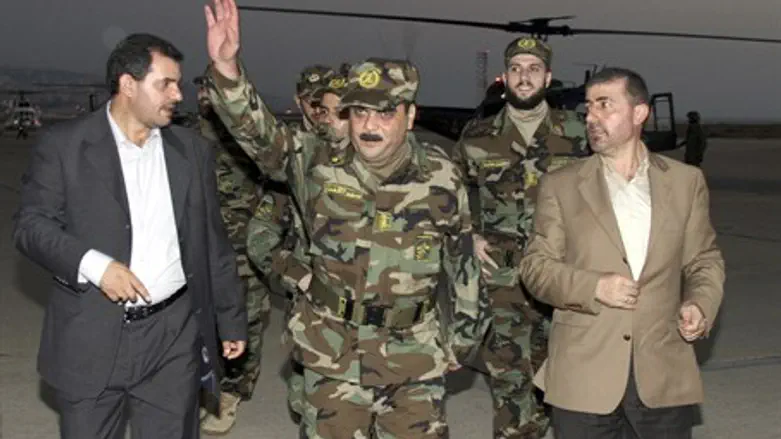
The elimination of Hezbollah commander Samir Kuntar in an Israeli Air Force airstrike has been hailed by Israelis from across the political spectrum Sunday.
Kuntar was widely reviled in Israel for his role in a 1979 terrorist attack by the now-defunct Palestine Liberation Front, during which terrorists kidnapped an Israeli father and his four-year-old daughter from Nahariya and then brutally executed them on a nearby beach. Kuntar himself beat the young girl to death with the butt of his rifle; her two-year-old sister was accidentally smothered to death by their terrified mother as she stifled her cries to prevent them from being discovered.
He was released after serving nearly 30 years of a multiple-life sentence in a 2008 prisoner swap with Hezbollah, and was immediately feted as a hero by the Shia Islamist terror group and appointed one of its commanders. He was reportedly targeted in a previous airstrike but emerged unscathed. Israeli jets finally found their target on Saturday night, obliterating a building near Damascus where he had been living with a number of other Hezbollah commanders.
Footage from site of airstrike which killed Samir Kuntar:
But Israelis aren't the only ones celebrating Kuntar's elimination.
In an illustration of the political complexities evoked by Syria's civil war, many members of the predominantly Sunni Muslim Syrian opposition took to social media in the aftermath of the strike to thank the Jewish state for taking him out.
Hezbollah has played a key - and brutal - role in propping up the regime of Bashar al-Assad at the behest of Iran, making it a subject of intense hatred for most Sunni Muslims, many of whom previously supported the group for its battle against Israel.
Many Arabic-language opposition accounts were more explicit, including this one wishing him "to hell and good riddance."
And this one, celebrating the "good news" and wishing that "all Lebanese dogs in Syria should meet the same end."
Predictably, pro-Assad accounts mourned his death and hailed him as a "martyr."
A Lebanese Druze by birth, after his release Kuntar was lionized and even granted honorary awards by Syrian dictator Bashar al-Assad himself, as well as Hezbollah and the Iranian government, who highlighted his status as the longest-serving prisoner to be freed in such an exchange with Israel.
Yet despite his enormous symbolic value to Iran's so-called "axis of resistance" Kuntar was, in operational terms, a relatively unimportant player inside Lebanon.
In recent years, however, Hezbollah sought to use his links to the Druze community to further its goals in Syria, deploying him to the war-torn country's southern provinces to encourage (with ample funds) Syrian Druze to join the pro-Assad National Defense Force paramilitary.
By all accounts he failed in his task; though fearful of the Islamist-dominated Syrian rebel movement, Syria's Druze population grew quickly disenfranchised with the Assad regime as well. While the regime was eager to recruit young Druze men to deploy in government strongholds elsewhere in the country, Damascus essentially abandoned the strategically-unimportant Druze heartlands to their fate. Anti-regime protests by disgruntled Druze have been met with bloody regime retribution.
Adding salt to the wound, Kuntar's assassination was likely aided at least indirectly by Russia - a key strategic ally of Assad. Under a deal reached between Jerusalem and Moscow, both the Israeli and Russian air forces must notify the other's forces of airstrikes inside Syria to avoid accidental clashes.
Kuntar's strategic unimportance to Russia likely sealed his fate.
